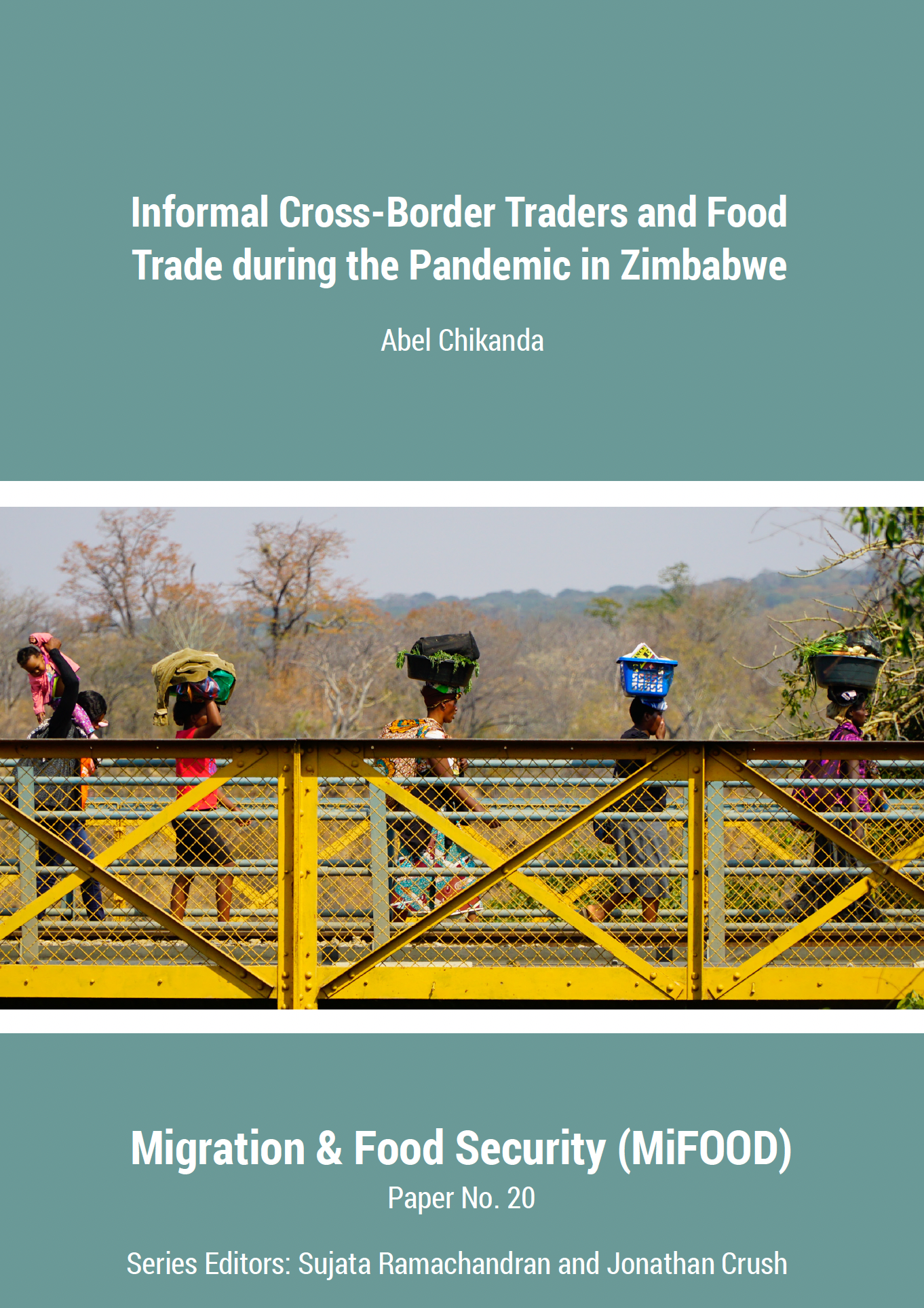The collapse of Zimbabwe’s economy in the 2000s resulted in the country relying largely on food imports from other countries, especially from South Africa. Informal cross-border traders have become crucial players in the country’s food economy, playing an important role in the importation of food as well as its retail across the country. Cross-border trading also provides employment opportunities to a large number of people in the country, especially women in an environment of depressed economic opportunities. The paper first uses data from a survey conducted by the Southern African Migration Program (SAMP) in 1997, 2007 and 2014 to document the role of informal food traders in not only improving the availability of food on the market but also in creating employment opportunities in the country. It then uses document analysis to investigate how informal cross-border trading and food trading was affected by the COVID-19 pandemic-induced lockdowns and assesses its current role in Zimbabwe’s economy. Finally, it discusses how informal cross-border trading and informal food trading in Zimbabwe have changed in the post-COVID-19 period and sets a research agenda on understanding the role of informal cross-border trade in the economies of countries in the global South.

